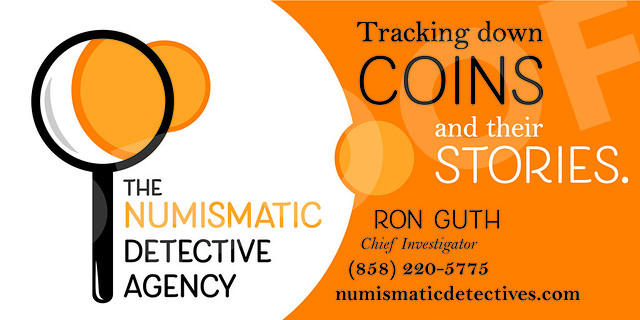
PREV ARTICLE
NEXT ARTICLE
FULL ISSUE
PREV FULL ISSUE
ZIMBABWE'S LATEST SMALL CHANGE PANICZimbabwe's money situation is a debacle that just keeps debacling - a permanent economic dumpster fire. We've been writing about this for over a decade, and here we are with another story (this time from the Wall Street Journal) about the country's dismal economy. Great headline: "The Country Behind the $100,000,000,000,000 Bill Hits a New Stage of Dysfunction." As mentioned earlier, the current situation is an exact mirror of the Small Change Panic that swept the United States during the Civil War. Without a proper government-provided means of exchange, businesses and citizens make do, improvising substitutes in order to keep markets functioning. -Editor On a recent afternoon, Rutendo Manyowa handed over a U.S. $5 bill to pay for her $3.50 order of chicken, fries and a soft drink at a popular fast-food joint in the Zimbabwean capital. But instead of a $1 bill and two quarters in change, the cashier handed Ms. Manyowa three slips of paper, bearing the restaurant's name and the amount of money she could use to buy her next meal.
Zimbabwe, the country that brought the world the one-hundred-trillion-dollar bill, has reached a new stage of monetary dysfunction. Because of a lack of small change, businesses have started printing their own The paper chits and other pecuniary workarounds are the latest products of two decades of extreme mismanagement of Zimbabwe's currency. ... in early 2019, the central bank reintroduced the Zimbabwe dollar, changing U.S. dollar-denominated savings and domestic government debts into a local currency of rapidly declining value. Today, $1 costs more than 900 Zimbabwean dollars and inflation hit 230% in January. Most businesses once again demand payments in U.S. dollars, although the Zimbabwe dollar remains the country's official currency. That's where the issue of change comes in. Zimbabwean commercial banks and the central bank import U.S. dollar bills for local use, but their heavy weight and low value makes flying in coins from overseas uneconomical. One-dollar notes—the most widely used bills in a country where even before the pandemic nearly 40% of people lived on less than $1.80 a day—are also often in short supply. The paper IOUs have proven an unsatisfactory fix. For starters, they aren't fungible. Ms. Manyowa, a 23-year-old college student, spent 15 minutes waiting by the till of a Harare Chicken Inn until another customer paid with a $1 bill she could use for the bus fare home. In contrast to bank notes, which are usually made from cotton or plastic, paper chits also can't withstand an extended spin in the washing machine. Adelaide Moyo, a journalist for a Zimbabwean newspaper, says she has more than once found the faded remnants of vouchers from Chicken Inn or the local franchise of Netherlands-based supermarket chain Spar stuck to her clothes when she pulls them out of the wash.
To avoid such losses, Ms. Moyo says she has accepted slices of cheese, extra sauce and, once, a hard-boiled egg instead of more paper chits. Those barter trades usually don't offer good value for money, like the slice of cheese that cost her $0.50, but, she says, they're better than carrying around, or losing, vouchers from multiple places. The chits issued by Spar feature an intricate pattern and holograms. The supermarket chain has had to replace the electronic tags on its shelves because the old ones ran out of digits to display prices in Zimbabwean dollars. Smaller stores keep a book with the names of customers they still owe money to behind the counter or scrawl amounts yet to be reimbursed on receipts. Some clients, fearing that a shopkeeper won't remember, have taken to filming those exchanges on their phones.
Harare-based economist Gift Mugano says that despite the chits' drawbacks, most Zimbabweans still prefer them to getting their change in local currency. I can't help but recall the classic satire on government plans to airlift shipments of vowels from Hawaii to Bosnia. But could collectors airlift small change to Zimbabwe? The time to build collections of money substitutes is while they actively circulate - perhaps some trades favorable to both sides could be arranged, helping everyday Zimbabweans while enriching private collections and museum holdings. -Editor
To read the complete article (subscription required), see:
To read the earlier E-Sylum articles, see:
Wayne Homren, Editor The Numismatic Bibliomania Society is a non-profit organization promoting numismatic literature. See our web site at coinbooks.org. To submit items for publication in The E-Sylum, write to the Editor at this address: whomren@gmail.com To subscribe go to: https://my.binhost.com/lists/listinfo/esylum All Rights Reserved. NBS Home Page Contact the NBS webmaster 
|
